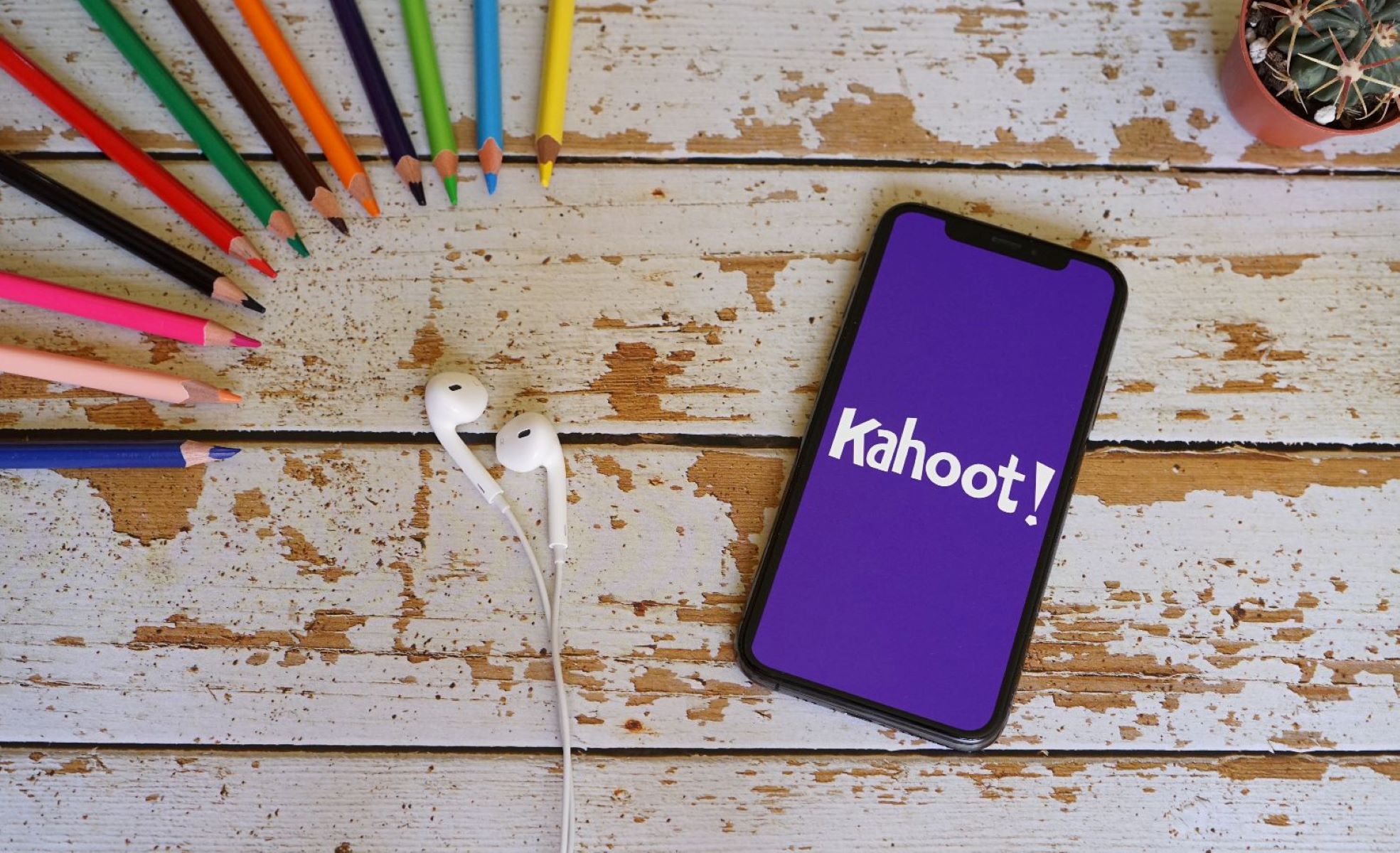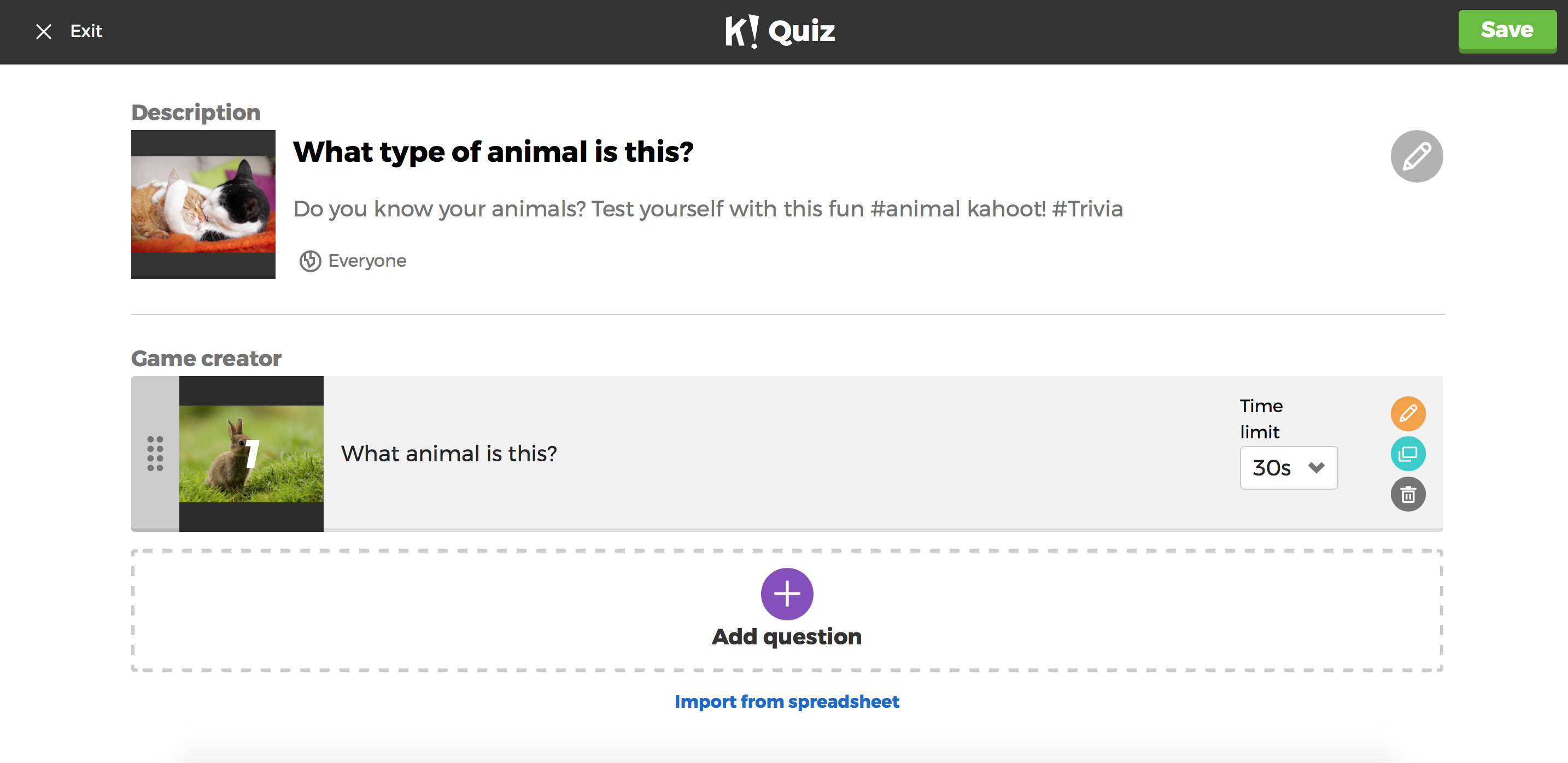Introduction
Choosing the right smartphone can be a daunting task with so many options available in the market. With each brand boasting unique features and specifications, it’s essential to find a smartphone that fits your specific needs and preferences. But fear not, as we are here to help you make that decision.
This comprehensive quiz is designed to determine the perfect smartphone for you based on your budget, operating system preference, desired features, brand loyalty, storage requirement, screen size preference, camera quality, battery life priority, 5G capabilities interest, and design preferences.
By answering a series of questions, you’ll be guided through the selection process to find the smartphone that aligns perfectly with your needs and desires. Whether you’re a tech enthusiast looking for the latest flagship device or a budget-conscious individual seeking a reliable and cost-effective option, this quiz will assist you in making an informed decision.
Remember, a smartphone is not just a device; it’s an extension of your lifestyle. Whether you’re a photography enthusiast, a gaming fanatic, or a productivity-savvy professional, there’s a smartphone out there that caters to your unique requirements. So, let’s dive into the quiz and discover the smartphone that suits you best!
Question 1: What is your budget?
When it comes to purchasing a smartphone, budget plays a crucial role in determining the options available to you. Setting a budget helps narrow down your choices and ensures you find a smartphone within your financial comfort zone.
If you’re looking for a high-end flagship device with all the latest features and cutting-edge technology, you may need a larger budget. These smartphones often come with state-of-the-art cameras, powerful processors, and stunning displays, but they can be expensive.
On the other hand, if you are on a tight budget, there are plenty of mid-range and budget-friendly options available. These smartphones offer a good balance between performance and affordability.
When considering your budget, it’s essential to think about the longevity of the device. Investing in a higher-priced smartphone may offer better performance and a longer lifespan, while choosing a more budget-friendly option might require upgrading sooner.
It’s also important to consider any additional costs that may come with purchasing a smartphone. Accessories such as phone cases, screen protectors, and charging cables should be factored into your budget.
Remember, striking a balance between your desired features and your budget is crucial. It’s better to find a smartphone that meets your needs within your budget rather than stretching yourself financially for the latest and greatest device.
So, take a moment to determine your budget for a new smartphone. Consider how much you are willing to spend and how important it is for you to have the latest features and specifications within that price range. Once you have a clear idea of your budget, we can move on to the next question to find the smartphone that best suits your needs and budget.
Question 2: What is your preferred operating system?
The operating system of a smartphone determines its user interface, app compatibility, and overall user experience. It’s important to consider your preferred operating system when choosing a smartphone as it plays a significant role in how you interact with the device.
There are three major operating systems to choose from: Android, iOS, and Windows. Each has its own unique features and benefits, catering to different user preferences.
Android, developed by Google, is known for its customization options and wide range of device choices. It offers a diverse selection of apps through the Google Play Store and allows for personalized customization of homescreens, widgets, and notification settings. Android is a popular choice among users who value flexibility and customization.
iOS, the operating system exclusive to Apple devices, offers a user-friendly interface and seamless integration with other Apple products and services. It comes with a curated app store, the App Store, offering a vast selection of high-quality apps that are optimized for iOS devices. iOS is favored by users looking for a smooth and intuitive user experience.
Windows, developed by Microsoft, provides a familiar interface for users who are accustomed to the Windows operating system on their computers. It offers a unified experience across devices and supports a variety of productivity-focused apps. Windows is a suitable choice for individuals who prioritize seamless integration between their smartphone and other Windows devices.
When considering your preferred operating system, it’s important to think about the compatibility with your existing devices, the availability of apps that you rely on, and your personal familiarity and comfort level with each system.
So, think about which operating system resonates with you the most. Are you drawn to the flexibility of Android, the seamless integration of iOS, or the familiarity of Windows? Once you have made your choice, we can move on to the next question to determine the perfect smartphone for you.
Question 3: What are your key desired features?
Now that you have identified your budget and preferred operating system, it’s time to consider the key features that are most important to you in a smartphone. Different people have different priorities when it comes to smartphone features, so it’s essential to determine what matters most to you.
Here are some popular features to consider:
- Camera Quality: If you are passionate about photography or enjoy capturing moments, a smartphone with a high-quality camera is a must. Look for features such as optical image stabilization, good low-light performance, and multiple lenses for different shooting modes.
- Battery Life: For individuals who rely heavily on their smartphones throughout the day, having a long-lasting battery is crucial. Consider a smartphone with a large battery capacity or features like fast charging or wireless charging.
- Storage Capacity: If you store a lot of photos, videos, or apps on your device, opting for a smartphone with ample storage space is essential. Look for devices with expandable storage or larger internal storage options.
- Display Quality: A smartphone with a vibrant and high-resolution display can greatly enhance your multimedia experience. Consider screen size, resolution, and features like AMOLED or HDR support.
- Processing Power: If you use your smartphone for resource-intensive tasks such as gaming or video editing, a powerful processor and ample RAM are essential for smooth performance.
- Security Features: If data security is a top priority for you, consider smartphones with advanced security features such as facial recognition or fingerprint sensors.
These are just a few examples of the many features available in smartphones today. Think about your lifestyle, interests, and how you primarily use your smartphone to determine the features that are most important to you.
Take a moment to consider which of these features resonate with your needs and priorities. Once you have a clear idea of your desired features, we can move on to the next question in our quest to find the perfect smartphone for you.
Question 4: What is your preferred brand?
When it comes to smartphones, there are several well-established brands in the market, each with its own unique reputation, design philosophy, and ecosystem. It’s important to consider your preferred brand when choosing a smartphone as it can greatly influence your overall user experience.
Here are some popular smartphone brands to consider:
- Apple: Known for its sleek design, intuitive user interface, and seamless integration with other Apple devices, Apple’s iPhone lineup appeals to those who prefer a premium and cohesive ecosystem.
- Samsung: As one of the leading Android smartphone manufacturers, Samsung is known for its stunning displays, powerful performance, and innovative features. Their Galaxy series offers a wide range of options to fit different budgets and preferences.
- Google: Google’s Pixel smartphones are acclaimed for their exceptional camera quality, stock Android experience, and timely software updates. They are the go-to choice for users who prefer a pure Android experience.
- OnePlus: OnePlus devices are popular among tech enthusiasts for their flagship-level specifications, smooth user experience, and competitive pricing. They are known for offering high-performance devices with a near-stock Android interface.
- Huawei: Huawei smartphones often come with impressive camera capabilities, sleek designs, and long battery life. They are favored by users who value features like large displays, ample storage, and powerful processors.
These are just a few examples of the many smartphone brands available in the market. It’s essential to consider factors such as brand reputation, user reviews, after-sales support, and ecosystem compatibility when choosing your preferred brand.
Think about your past experiences with smartphones and which brand has resonated with you the most. Do you value the seamless integration of Apple, the diversity of options from Samsung, or the pure Android experience from Google? Once you have determined your preferred brand, we can move on to the next question and find the perfect smartphone for you.
Question 5: What is your storage requirement?
Storage capacity is an important consideration when choosing a smartphone as it determines how much data, such as apps, photos, videos, and documents, you can store on your device. Assessing your storage requirements is crucial to ensure you have enough space for all your digital content.
Smartphones today offer varying storage options, typically ranging from 16GB to 512GB or more. Here are some factors to consider when determining your storage needs:
- Media Consumption: If you enjoy capturing high-resolution photos and videos, downloading apps, and storing music or movies on your device, you may require more storage space. Opt for a smartphone with larger internal storage or support for expandable storage via microSD cards.
- Productivity and Work: If you use your smartphone for work or professional purposes, consider the amount of data you need to store, such as documents, presentations, and project files. Ensure you have ample space to store all your important files.
- App Usage: Some apps, especially games and multimedia-intensive applications, can consume a significant amount of storage space. If you use such apps frequently, it’s advisable to have a smartphone with sufficient storage capacity.
- Cloud Storage Options: If you rely heavily on cloud storage services such as Google Drive, Dropbox, or iCloud, you may not require as much local storage. Consider how much data you can store on the cloud and determine if a device with smaller internal storage would suffice.
It’s important to strike a balance between having enough storage for your current needs and leaving room for future expansion. Keep in mind that smartphones with larger storage capacities are often more expensive, so consider your budget along with your storage requirements.
Reflect on your storage needs and the type of content you frequently store on your smartphone. Are you a heavy media consumer, a productivity-focused user, or a combination of both? Once you have determined your storage requirement, we can proceed to the next question and continue our journey to find the perfect smartphone for you.
Question 6: What is your preferred screen size?
The screen size of a smartphone plays a significant role in your overall user experience, determining the device’s portability, visual immersion, and ease of use. It’s essential to consider your preferred screen size when choosing a smartphone, as it directly impacts how you interact with the device and consume content.
Smartphone screens are measured diagonally in inches, and their sizes can vary significantly. Here are some factors to consider when determining your preferred screen size:
- One-Handed Use: If you prefer to use your smartphone with one hand and value ease of reachability, you may lean towards a device with a smaller screen, typically around 5 to 6 inches.
- Media Consumption: If you enjoy watching movies, playing games, or consuming multimedia content on your smartphone, a larger screen size, around 6.5 to 7 inches or more, can provide a more immersive and enjoyable experience.
- Portability: Smaller screen sizes generally result in more compact and pocket-friendly devices. If portability is a top priority for you, consider a smartphone with a smaller screen size.
- Productivity: If you use your smartphone for productivity tasks such as reading emails, editing documents, or multitasking, a larger screen size may offer more screen real estate and enhance your productivity.
Keep in mind that screen size is not the only factor to consider; screen-to-body ratio and aspect ratio also play a role in the overall form factor of the device. Higher screen-to-body ratios result in smaller bezels, maximizing the display area within a smaller physical footprint.
Reflect on how you primarily use your smartphone and your preferences regarding screen size. Do you value one-handed usability, media immersion, or portability? Once you have determined your preferred screen size, we can move forward to the next question in our quest to find the perfect smartphone for you.
Question 7: What is your preferred camera quality?
The camera quality of a smartphone has become a significant factor for many users when choosing a device. Whether you’re a photography enthusiast or simply enjoy capturing memories on the go, the camera capabilities of your smartphone can greatly impact your overall satisfaction with the device.
Here are some factors to consider when determining your preferred camera quality:
- Megapixel Count: Higher megapixel count generally allows for more detailed and sharper images. If you prioritize capturing intricate details, look for smartphones with higher megapixel sensors.
- Low-Light Performance: If you frequently use your smartphone camera in low-light conditions, consider devices that excel in low-light photography. Features like large pixel size, wider aperture, and advanced night mode can significantly improve image quality in dimly lit environments.
- Optical Image Stabilization (OIS): OIS helps reduce camera shake, resulting in sharper and less blurry photos, especially in challenging shooting conditions or when capturing moving subjects. If stability is important to you, look for smartphones with OIS.
- Zoom Capability: If you frequently find yourself needing to zoom in on subjects, consider smartphones with optical zoom capabilities. Optical zoom provides better clarity and maintains image quality compared to digital zoom.
- Camera Modes and Features: Some smartphones offer a wide range of camera modes and features, such as portrait mode, panorama, HDR, or AI-assisted photography. Consider the camera capabilities and features that align with your photography interests and needs.
It’s important to acknowledge that camera quality is not solely determined by megapixel count. Factors like image processing algorithms, sensor quality, and software optimization also play a significant role.
Think about how you intend to use your smartphone camera and the level of importance you place on image quality. Are you a casual photographer seeking good everyday shots, or are you passionate about capturing professional-level images? Once you have determined your preferred camera quality, we can continue our exploration to find the perfect smartphone for you.
Question 8: Do you prioritize battery life?
The battery life of a smartphone is a crucial consideration, especially for those who rely heavily on their devices throughout the day. A longer battery life ensures that you can stay connected, productive, and entertained without constantly worrying about finding a power source.
Here are some factors to consider when determining if you prioritize battery life:
- Usage Patterns: Reflect on how you typically use your smartphone. If you are a heavy user who plays games, streams videos, or uses resource-intensive apps, you may benefit from a smartphone with a larger battery capacity.
- Power Management: Some smartphones come with built-in power-saving features and modes that help extend battery life by optimizing resource usage. If battery longevity is a priority for you, look for devices with advanced power management options.
- Charging Speed: Consider your tolerance for waiting for your device to charge. Some smartphones offer fast charging capabilities, allowing you to quickly recharge your device and minimize downtime.
- Power Efficiency: The efficiency of the device’s processor and operating system can impact battery life. More power-efficient processors and optimized software can help maximize battery longevity.
It’s important to note that battery life can vary depending on individual usage patterns and settings. Factors like screen brightness, connectivity options, and running background apps can affect how long your battery lasts.
Think about how important battery life is to you and the level of endurance you require from your smartphone. Do you need a device that can last all day with heavy usage, or are you content with a device that can get you through a typical workday? Once you have determined your priority for battery life, we can proceed to the next question and continue our journey to find the perfect smartphone for you.
Question 9: Are you interested in 5G capabilities?
With the advent of 5G technology, smartphones are now capable of accessing faster mobile internet speeds, lower latency, and enhanced connectivity. Considering the future of wireless networks, it’s worth contemplating whether you are interested in harnessing the benefits of 5G on your smartphone.
Here are some factors to consider when determining your interest in 5G capabilities:
- Internet Speed: 5G networks offer significantly faster download and upload speeds compared to their predecessors, enabling quick downloads, seamless streaming, and lag-free browsing. If you rely on your smartphone for data-intensive tasks or require fast internet speeds, 5G can greatly enhance your mobile experience.
- Latency: 5G networks also offer lower latency, meaning reduced response times for applications and services. This can be particularly beneficial for gamers, video conference participants, and users of real-time applications that require immediate responsiveness.
- Future-Proofing: By opting for a smartphone with 5G capabilities, you are preparing yourself for the future of mobile networks. As 5G infrastructure continues to expand globally, having a compatible device ensures you can take advantage of the latest advancements in mobile connectivity.
- Network Coverage: Before considering 5G capabilities, it’s important to check the availability and coverage of 5G networks in your area. While 5G networks are continuously expanding, their coverage may still be limited compared to 4G LTE networks.
It’s important to note that while 5G is an exciting technological advancement, it may not be necessary for everyone. If you primarily use your smartphone for basic tasks like calls, messaging, and web browsing, the benefits of 5G may not be as significant for you.
Think about how you use your smartphone and your expectations for internet speed and connectivity. Would you benefit from faster download speeds, reduced latency, and being at the forefront of mobile network technology? Once you have determined your interest in 5G capabilities, we can proceed to the next question and continue our exploration to find the perfect smartphone for you.
Question 10: Do you have any specific design preferences?
While smartphone functionality and features are essential, the design of the device can also greatly influence your overall satisfaction and user experience. Considering your specific design preferences ensures that you not only have a powerful device but one that matches your personal style.
Here are some aspects to consider when determining your design preferences:
- Form Factor: Think about the size and shape of the device that appeals to you. Do you prefer a compact and sleek phone that is easy to handle with one hand, or do you prefer a larger device with a larger display for multimedia consumption?
- Materials: Consider the materials used in the construction of the device. Some smartphones feature glass backs, which offer a premium and glossy look, while others may have metal or plastic bodies that prioritize durability and practicality.
- Colors: Think about the color options available for the smartphone. Do you prefer classic color choices like black or white, or are you interested in more vibrant and unique color options?
- Notch or Bezels: Consider your preference regarding the display design. Some smartphones feature notches or cutouts to house front-facing cameras and sensors, while others have minimal bezels or even full-screen designs.
- Fingerprint Sensor Placement: Some smartphones have fingerprint sensors integrated into the display, while others may have rear-mounted or side-mounted fingerprint sensors. Consider your preference for convenience and ease of use.
- Water and Dust Resistance: If you lead an active lifestyle or frequently find yourself in situations where your device may encounter water or dust, consider smartphones with water and dust resistance certifications.
Remember, design preferences are subjective and personal. Reflect on your style preferences and what design elements you find visually appealing and ergonomic. Once you have determined your design preferences, we can move forward to the next phase of finding the perfect smartphone for you.
Conclusion
Congratulations on completing the quiz to find the perfect smartphone for you! By considering factors such as your budget, preferred operating system, desired features, brand preferences, storage requirement, screen size, camera quality, battery life preference, interest in 5G capabilities, and design preferences, you have taken significant steps towards identifying the smartphone that aligns with your needs and preferences.
Remember, choosing a smartphone is a personal decision, and what works for one person may not work for another. Your individual needs, preferences, and priorities play a crucial role in selecting the right device for you.
Now armed with the knowledge of what you are looking for in a smartphone, it’s time to explore the various options available in the market. Research different models, compare specifications, read reviews, and consider reaching out to experts or fellow users for recommendations.
Ultimately, finding the perfect smartphone requires a balance between features, performance, and affordability. It’s important to stay informed and make a decision that aligns with your lifestyle and requirements.
Thank you for taking the time to complete the quiz, and we hope that your journey to find the perfect smartphone is an exciting and fulfilling one. Happy smartphone shopping!

























